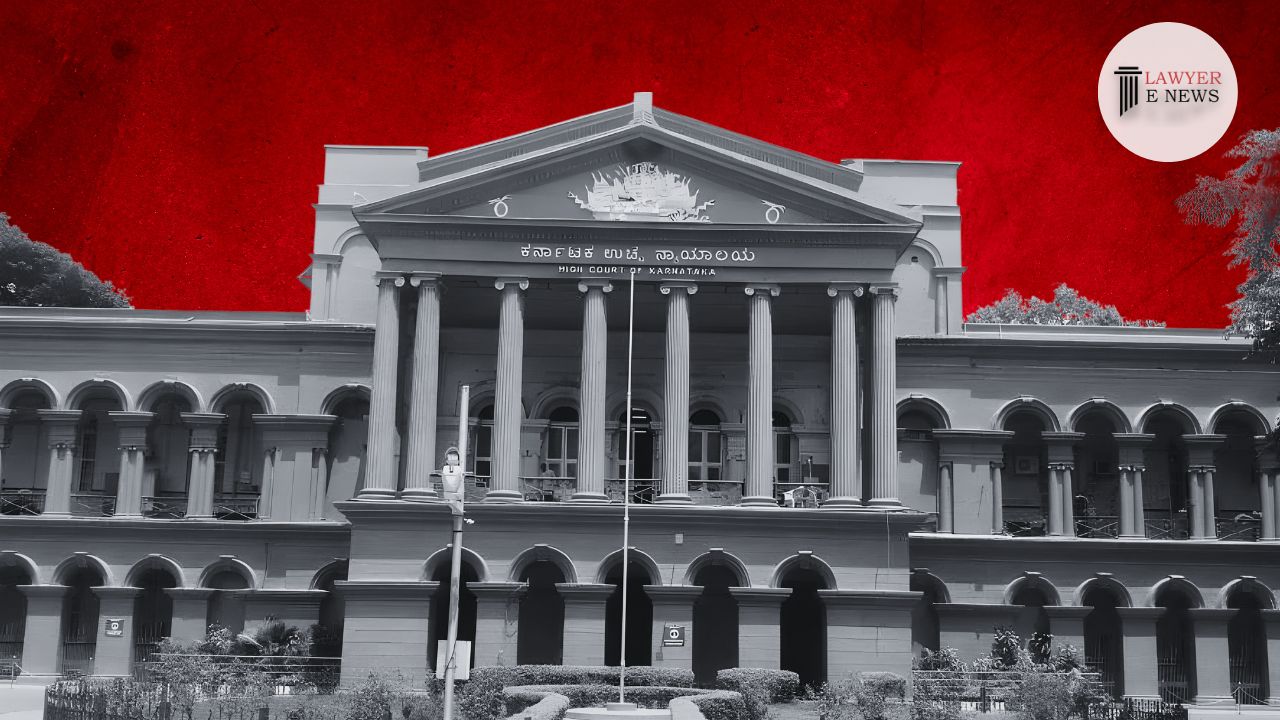-
by Admin
15 February 2026 5:35 AM



In a significant ruling, the High Court of Karnataka at Bengaluru granted a decree of divorce to Smt Kanakashree R, the appellant, on the grounds of cruelty as the evidence presented by her remained unchallenged and was deemed admitted by the court. The judgment, delivered by The Hon’ble Mr Justice Alok Aradhe and The Hon’ble Mr Justice Anant Ramanath Hegde on June 26, 2023, sets a precedent for cases where unchallenged evidence establishes a strong case for dissolution of marriage due to cruelty.
The appeal (Miscellaneous First Appeal No. 4378 of 2017 (FC)) was filed by Smt Kanakashree R against the dismissal of her petition seeking dissolution of marriage under Section 13(1)(1-a) of the Hindu Marriage Act, 1955. The Family Court had rejected the petition, but the appellant appealed against this decision, citing unchallenged evidence.
According to the appellant, the couple’s marriage was solemnized on June 8, 2009, in Mysuru. However, their relationship deteriorated within two months, with constant quarrels and abuse by the husband, who was under the influence of alcohol. The appellant alleged that she was not treated with respect, and the husband’s unadjustable nature made it impossible for them to continue their marital life. The appellant further contended that both parties were forced into the marriage against their wishes.
During the proceedings, the husband appeared before the court but did not file a statement of objections or challenge the evidence presented by the appellant. As a result, the wife’s evidence remained unchallenged, including documents marked as exhibits. Notably, the appellant’s birth date, December 10, 1994, as indicated in her SSLC marks card (Ex.P5), confirmed that she was only 15 years old at the time of marriage.
The High Court, citing established legal principles, emphasized the significance of cross-examination and the effect of non-cross-examination. It held that when a witness’s statement remains unchallenged due to the lack of cross-examination, the statement is deemed admitted. In this case, since the husband did not challenge the petition or cross-examine the appellant, the court considered the evidence to be admitted and relevant.
Considering the unchallenged evidence and the absence of opposition during the appeal hearing, the High Court concluded that the wife had successfully established her plea of cruelty, thus entitling her to a decree of dissolution of marriage. The court set aside the judgment and decree of the Family Court and allowed the petition seeking dissolution of marriage.
This judgment highlights the importance of properly challenging evidence and engaging in cross-examination during legal proceedings. The court’s ruling recognizes that unchallenged evidence can play a decisive role in determining the outcome of a case, particularly when it establishes grounds for dissolution of marriage due to cruelty.
This judgment is in line with previous legal precedents, such as the case of Muddasani Venkata Narsaiah (D) through Lrs. Vs. Muddasani Sarojana (2016) 12 SCC 288 and Vidhyadhar vs. Manikrao and Another (1999) 3 SCC 573, which underscore the significance of cross-examination and the admission of unchallenged evidence.
The judgment serves as a reminder to legal practitioners and parties involved in family law cases to carefully consider the implications of unchallenged evidence, as it can heavily influence the outcome of a dispute.
Date of Decision: June 26, 2023.
SMT KANAKASHREE vs DEVARAJ @ PAPANNA
